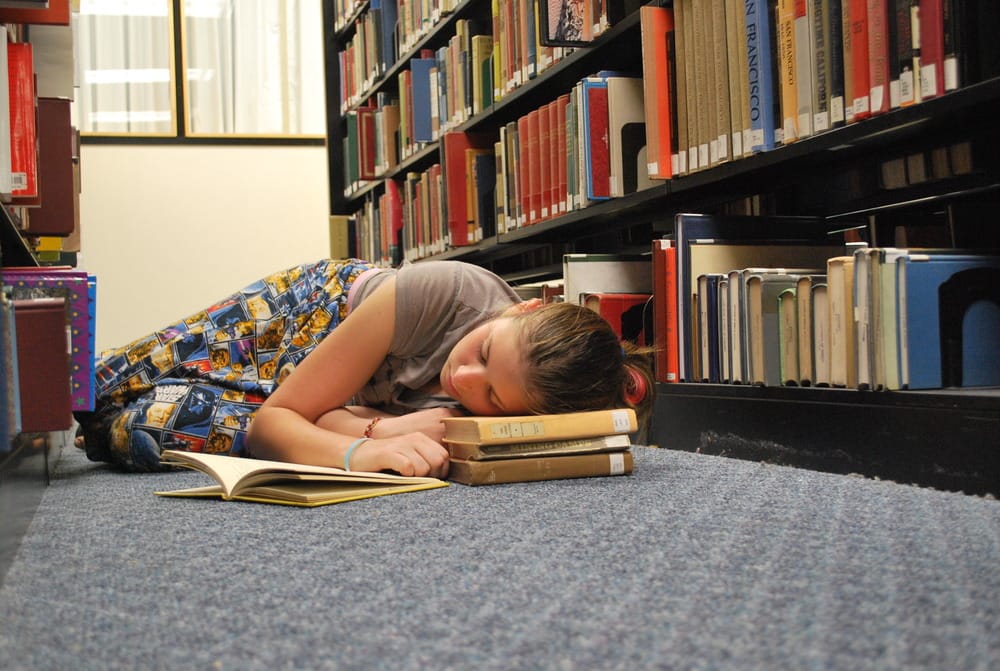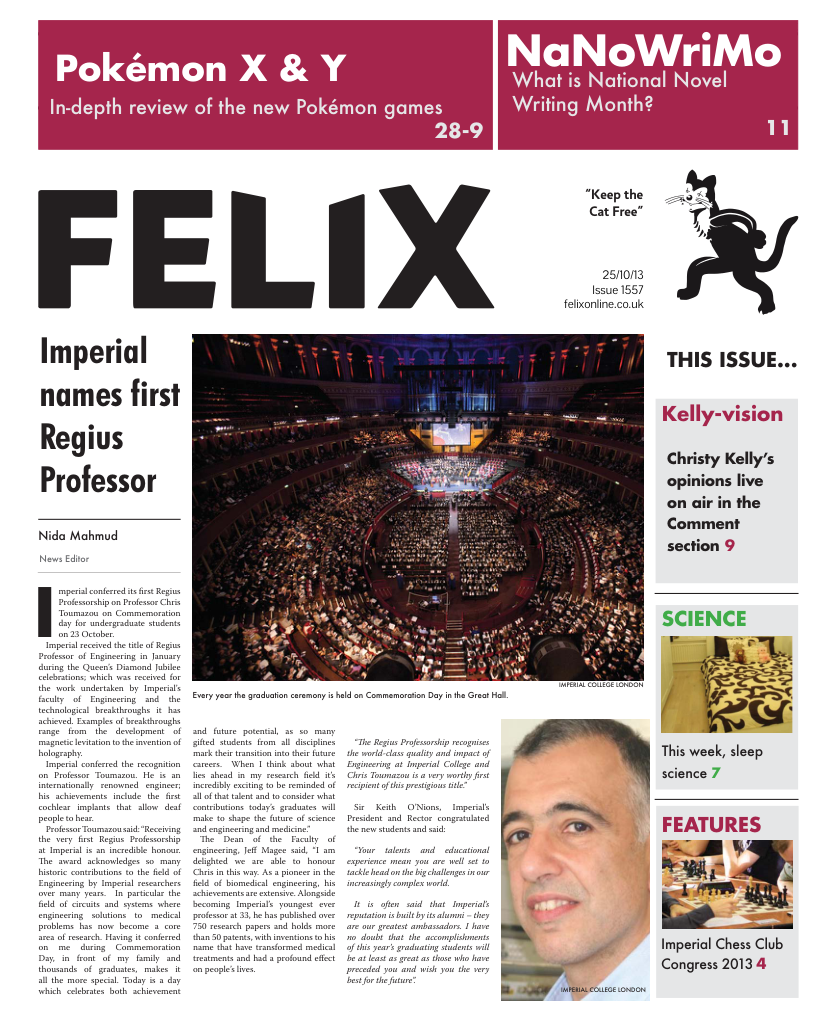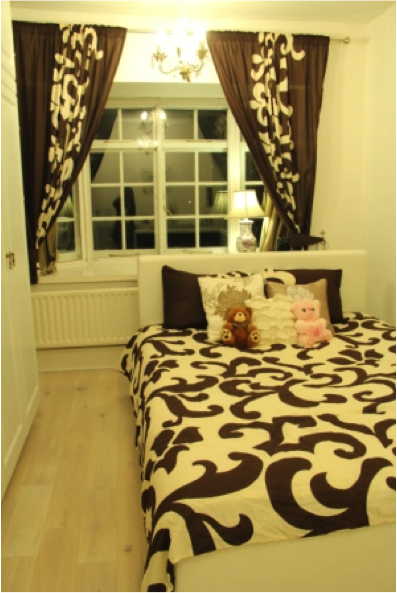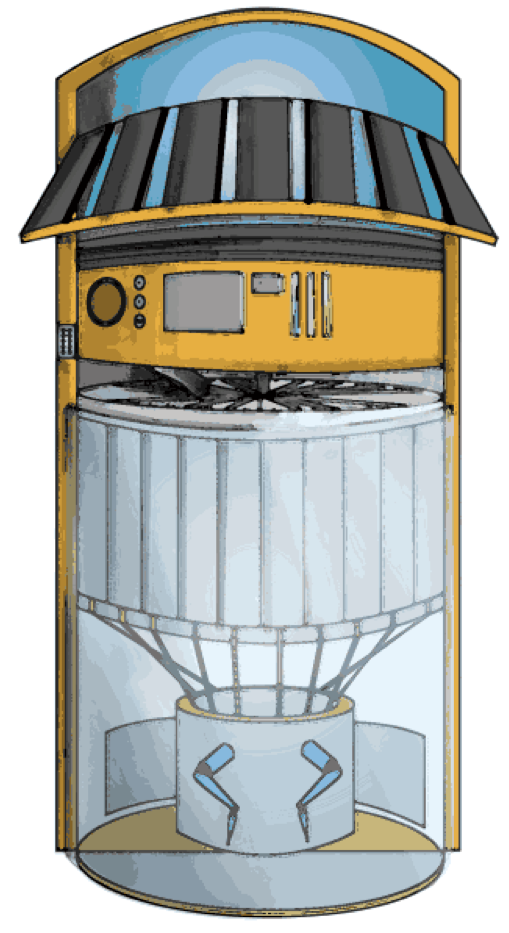Can’t sleep? It’s not me, it’s you
Amrita Ghosh and Arya Mehta explore solutions to sleep deprivation

Friend 1: Isn’t it really difficult for you to get the books from the top shelves in the library? Friend 2: Well I can’t do much about that, I’ll always be vertically challenged... because my mum’s short.
Overhearing a conversation amongst some freshers in JCR, similar to the one above, got us thinking about ourselves. Well it got us thinking about not only of how much of a pair of eavesdroppers we are, but how casually we blame our ‘genes’ for pretty much any undesirable characteristics we have. But can we really blame everything about us on our parents? Sleep deprivation is a common problem in many young people. But do we inherit that from our parents too? In fact there are proven hypotheses that state ‘our sleep pattern is regulated by genetics’. Scientists have found that a transcriptional repressor (DEC2) and a gene (ABCC9) are responsible to regulate sleep length in mammals. However this doesn’t mean that if you are not able to sleep at night, it is your parents’ fault. Recent studies show that there are five other factors that prevent a sound sleep.
Noise When living in London noise is inevitable. Either it is a speeding Lamborghini in South Ken or the obnoxious screams of drunken students late at night — all these are part of the London life package. These ‘little’ disruptions are one of the prime causes that prevent a good night’s sleep. In the first stage of sleep, our body and mind are relaxed. This is a state between being awake and asleep. In this state, a part of the brain called the thalamus prevents information flow from our senses to the rest of the brain. However, this system can’t filter out noises. Possible Solution: try to block out the noise as best as you can by keeping doors and windows closed. If this doesn’t remove all the noise, then plug your headphones in and hear the sound of waves or rain. This will do wonders (speaking from experience)!
Light and Dark It is part of human nature to sleep when it is dark and to stay awake when it is light. Light exposure stimulates a nerve pathway from the retina to the brain, keeping your brain active. So it is advisable to stop pulling off so many all nighters as you’ll end up altering your body clock, which will make it harder for you to fall asleep at appropriate times. Possible Solution: good time management is key to a good night’s sleep: if you have unfinished work it’s better to wake up early to complete it rather than spending all night working strenuously.
Diet Caffeine: when we are tired, it’s very easy for us to give in to a cup of coffee or a can of red bull to stay awake. But the effects of caffeine from these products can last in our system for hours, hence not letting us sleep. In addition, caffeine only promotes the light sleep and prevents the deep sleep stage. Alcohol: after a night out and a peg or two we feel very drowsy and people may say that alcohol helps them fall asleep. But too much alcohol consumption prevents the first stage of sleep from occurring, which disrupts the overall sleep cycle; and therefore it leaves us feeling tired in the morning. You may not know, but alcohol causes many people to snore, which makes it difficult to breath and thereby prevents comfortable sleep. Food: a heavy meal at dinner is another factor that prevents us from sleeping well. Several types of food such as spicy food, bacon, cheese all contain a chemical known as tyramine, which causes the release of a neurotransmitter called noradrenaline. This neurotransmitter regulates our ‘fight-or-flight’ response by keeping our body active. Possible Solution: try to avoid caffeine and alcohol especially at night as much as possible. You could replace a cup of coffee with a warm glass of milk instead. Aim for a light and carbohydrate rich dinner. Carbohydrates release the neurotransmitter serotonin, which makes us feel drowsy.
Body temperature Coming home from a cold rainy day (typical London weather!), we may think that a warm bedroom is the perfect solution. But when we sleep our core body temperature falls; however a warm room makes it difficult for this process to happen. This makes you feel uncomfortable and leaves you battling for sleep. Possible Solution: Keep your bedroom well ventilated and avoid turning on the radiator too much, which will not only save your bills, but also help you to sleep better!
A busy mind Balancing a social and an academic life is a nightmare for any university student. Being Imperial students, we know exactly how busy our minds always are. Did you know that a busy mind is sleep’s worst enemy? An overactive and anxious mind prevents the body from entering the relaxed state required to fall asleep. Possible Solution: Try doing a puzzle like Sudoku, hangman or crossword to distract your mind from other thoughts and then try falling asleep. Warm baths and showers have also been proven to relax the mind. Don’t underestimate the importance of sleep. Sleep helps us form memories, and assists us with speech and reasoning as well as regulates our mood. So next time you’re struggling to sleep, it may be your own fault and not that of your parents’!









